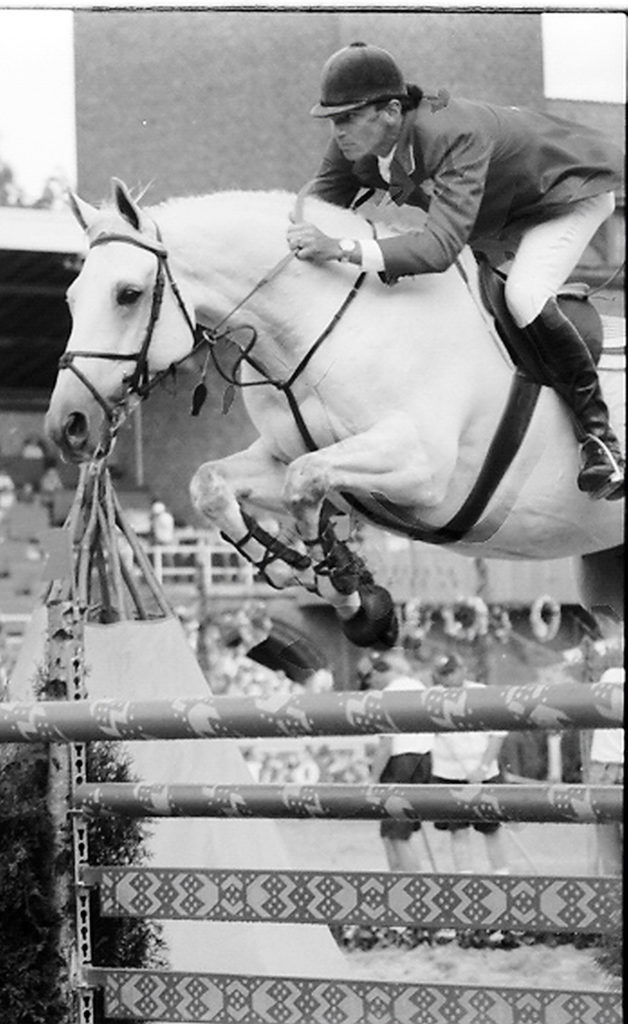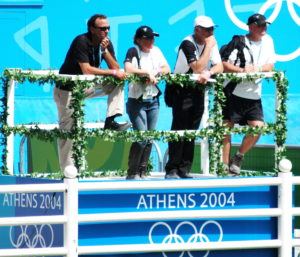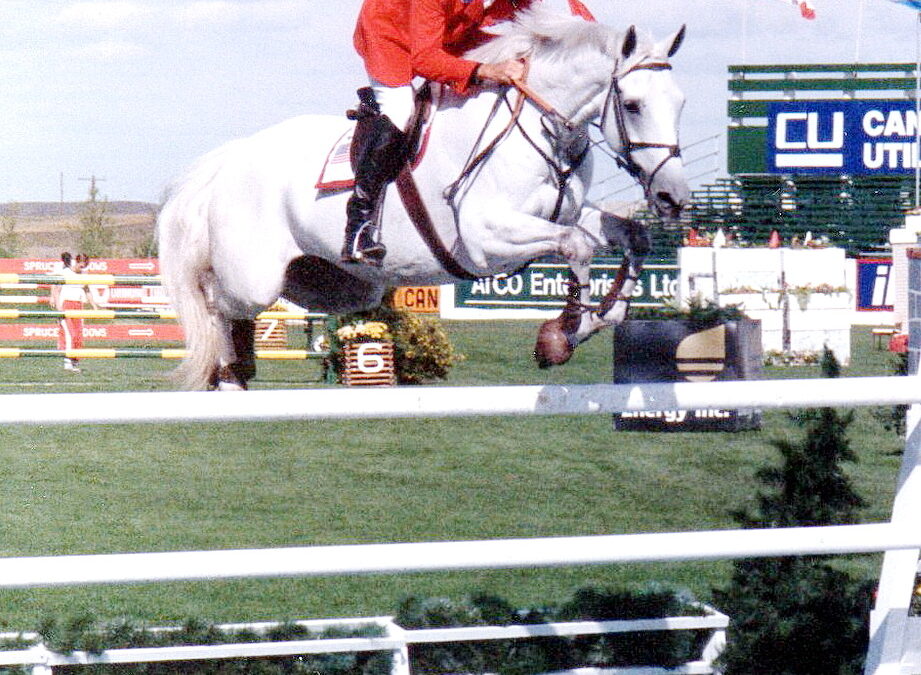By Nancy Jaffer
June 12, 2016

Greg Best and Gem Twist at Spruce Meadows.
Life changes are nothing new for Greg Best, who will be involved in another big one next year.
Growing up in Flemington, he was a winner with ponies when I first met him. He went on to become a gold medalist at the North American Junior and Young Rider Championships before taking the U.S. Equestrian Team Talent Search title.
He emerged as a star grand prix competitor under the tutelage of former U.S. show jumping coach Frank Chapot. At the age of 24, Greg teamed with Michael Golden’s legendary New Jersey-bred Gem Twist for two Olympic silver medals in 1988, then finished fourth in the 1990 World Equestrian Games, where Gem earned the Best Horse title.
But after a fall that injured his shoulder, Greg was ready to go in another direction–halfway across the world. In 1994, he started a new life in New Zealand, where he enjoyed the simplicity of that country’s equestrian scene (as compared to the way the sport is done in the U.S.)
He became a citizen and made his mark as a rider, then coached the Kiwis’ 2004 Olympic team. Greg; his wife, Kim, and their two children, Will, 3 and 1/2 and Pippa, 9 months, live on an 80-acre farm with a view of a scenic landscape that includes wineries.
But supporting his family means Greg, 51, has spent a lot of time away from New Zealand, doing 40 or 50 clinics annually.
“I’m really struggling with this whole thing of traveling for half the year. All of this is about family for me; the most important thing is my family. I recognized I needed to change something in my life,” Greg told me the other day.
He found the answer at Dana Hall, a girls’ private day and boarding school in Wellesley, Mass., where he has been a regular clinician for the last five years at the Karen Stives ’68 Equestrian Center. In 2017, Greg will be a trainer at the center, living in the U.S. with his family from May into November. That’s pretty much a down time for showing in New Zealand, where the seasons are the opposite of the U.S. Greg says the horses have their shoes pulled and live outside, with no blankets, for four months or so.
“New Zealanders,” he explained, “do things a bit differently, much the way we did things growing up.”

At the 1990 World Equestrian Games in Sweden, where Gem was named Best Horse.
He got a house through Airbnb and will move in next spring. Cookie DeSimone, who has been the school’s trainer in residence since the 1970s, will work full-time through December 2016, and then continue on a part-time basis.
The hope is that “there’s enough planning and preparation that’s gone into the program in the six months I’m there that the rest of the staff is going to be able to keep things ticking over,” said Greg, who called it “a work in progress” while noting he has no plans to remain in the U.S. year-round.
Even so, technology, from videos to Skype and Facetime, can fill in any gaps and keep him in touch with his students and staff.
Greg met several times with Dana Hall graduate Karen Stives, the eventing team gold and individual silver medalist at the 1984 Olympics, who died last year. His aim, he said, is “to honor her legacy, Karen’s vision for the program and incorporate the ideas of myself and the rest of the staff to create something very special for the students.”
About 100 of them participate in the school’s program annually, and there are 45 horses in the stable, half of which belong to students, while the other half are school horses.
Students compete both during the school year and the summer in major shows, including HITS, the Vermont circuit, Lake Placid, the equitation finals and the fall indoor circuit.
Greg will be at the shows with the girls, but he also wants to put the emphasis on horsemanship; not just riding and showing, focusing on an overall knowledge of horses.
“Greg exemplifies the qualities that Karen Stives ’68 envisioned for our program, and we know she would have been very pleased with his addition to our staff,” said the center’s director, Sarah Summers.
In the last 10-12 years, Greg has gotten away from riding, but after four or five operations, his shoulder is better and he plans to get back to being a participant now.
“It’s not (that) I’m expected to ride, but it’s something I’m really wanting to do. I’ve got one shot at this left,” he commented.
Where it will take him remains to be seen.
“I’ve done the show stuff I want to do, but just knowing my competitive nature, I think I’d want to get back in the ring at some stage,” he said.

Greg Best, left, ringside when he coached the 2004 New Zealand Olympic show jumping team.
The big picture for his Dana Hall students, however, involves a lot more than winning ribbons.
“My approach is not about showmanship, it’s about horsemanship. That sums up my teaching in a nutshell. I want to teach these people how to ride, I want to teach them how to train horses. My goal is to educate these kids and inspire them to love the sport the way that I love the sport. I hope, in the process, that I create what we think of as successful riders.”
He emphasized, “I just want to do it the right way; I don’t want to take any shortcuts.”
Greg believes in imparting knowledge that can help the students learn how to train their horses so they can go on and train other horses and continue to be successful five, 10 or more years down the road, not just for a few weekends here or there.
He will be giving clinics at the center in August and October 2016. Riders outside of the Dana Hall community are invited to participate. Registration information is available on the school’s website, www.danahall.org.




